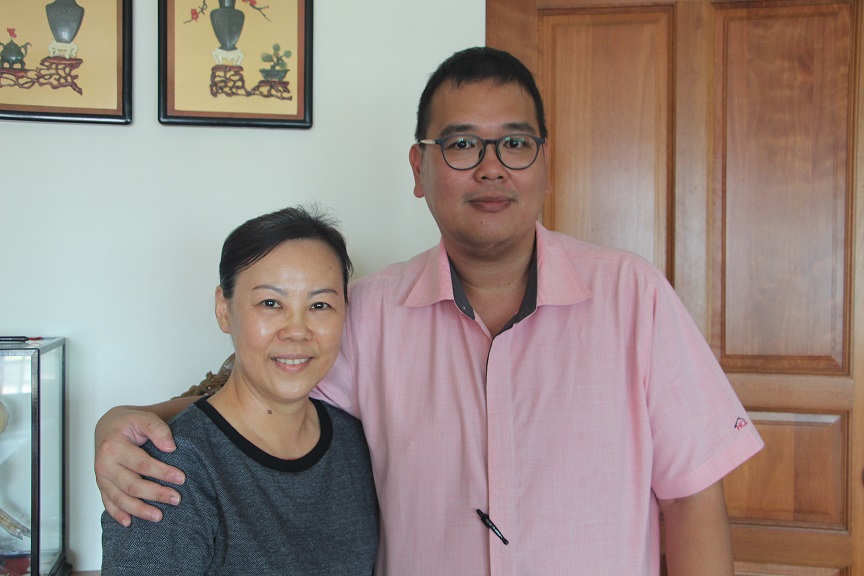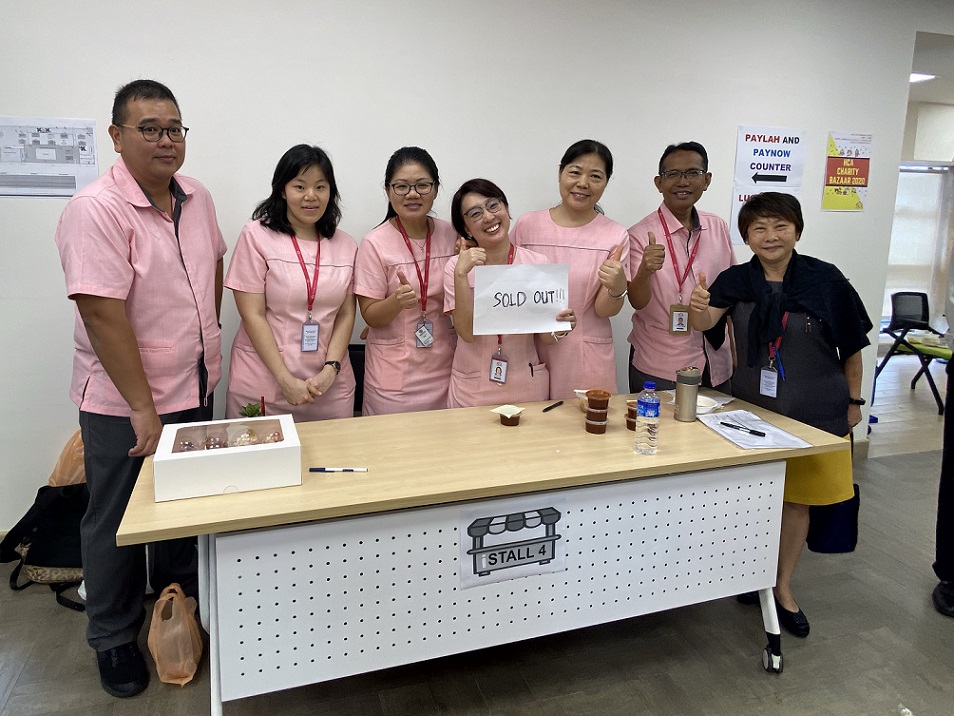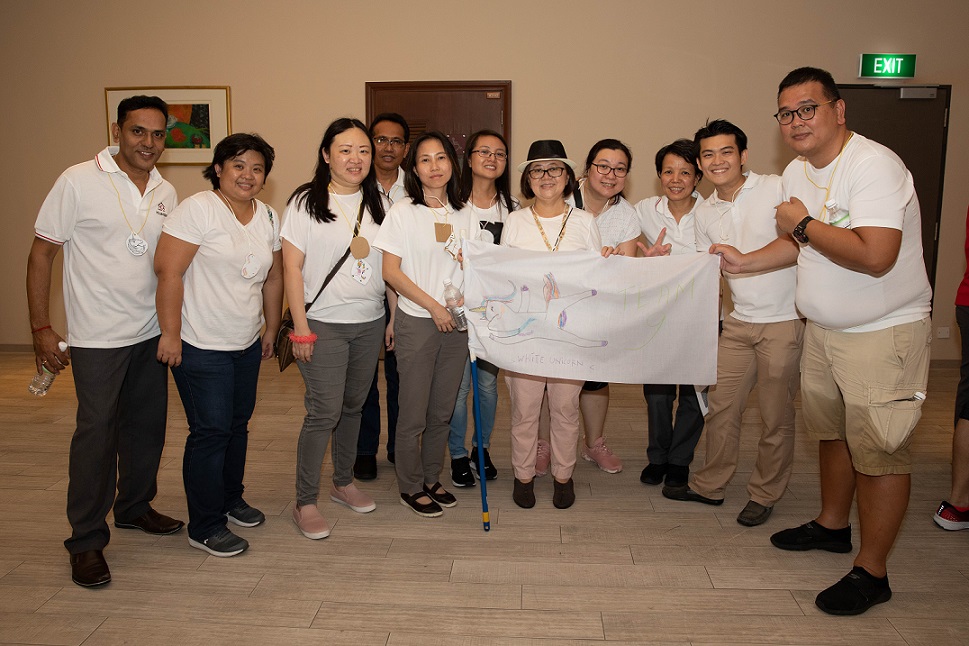
Close


For HCA Assistant Nurse Manager Casey Wong, it was a mid-life crisis that propelled him into nursing. Life had fallen into a mundane routine, prompting Casey to question the meaning of his work. “At the time, I heard about the professional conversion programme from a colleague, who had just started on the curriculum,” Casey explains.
Intrigued, Casey decided to take the plunge. He took up the two-year programme in 2005 and has not looked back since. “During the course, I discovered that nursing was very different from what I was doing previously.” Casey shares. “On hindsight, it was a calling that I didn’t know about.”

Casey (far left) with his team members at the HCA Charity Bazaar earlier this year.
Each day at HCA is filled with home visits, team discussions and paperwork. Amidst the hustle and bustle, Casey finds profound meaning in building human connections. “I really, really enjoy the work,” he says. “I am glad I made that choice.”
Casey began his nursing journey at a hospital, attending to patients from all walks of life. “I encountered a patient who was in severe pain,” he shares. “She was screaming in pain and the doctor attending to her had difficulties managing her symptoms. The patient’s larger frame also made it more challenging for the attending team to move her.”
“In the end, the anaesthetist had to come in to administer morphine subcutaneously.”
Faced with the intensity of the scene before him, a sudden thought came to Casey: “How can our care be as human as possible?”
At that point in time, Casey also began attending to more patients under palliative care. Amidst the routines of caring for these patients, he sensed an underlying stigma associated with palliative care. “People shun palliative care, even though it’s wonderful,” Casey says.
The work and conflicting emotions associated with palliative care piqued his interest. “I have a stubborn streak within me,” Casey laughs. “I just wanted to learn and know more about palliative care.”
Determined to learn more about palliative care, Casey signed up for an advanced diploma in the field. As part of the curriculum, he came on a four-day attachment with HCA. The attachment provided a brief but profound insight into home hospice care.
“I saw many different aspects of community care,” he says. “The home hospice team has limited resources but they could deal with so many challenges – it’s amazing how much they can achieve.”

Casey (far right) with fellow HCA colleagues at the Nurses’ Day celebration last year.
The brief stint with HCA paved Casey’s path into home hospice care. In the blink of an eye, it has been over five years since Casey first joined HCA. Through its ups and downs, the journey has been an enriching experience, replete with valuable life lessons.
Strength – whether physical, emotional or mental – is often lauded. It is admirable to be strong and independent – yet, allowing oneself to struggle and be vulnerable, is equally important.
Casey recounts the struggles of a patient, Mr Lim*, who recently passed on. “Mr Lim was a strong and prideful father figure, a man of few words,” Casey shares. “He was used to being the protector of his family, who quietly provided for his family.”
“As Mr Lim deteriorated, he lost the ability to walk and he felt weak and lousy,” Casey continues. “It was difficult for him to accept that there wasn’t much more the hospital could do for him.”
The first visit to Mr Lim’s home marked the beginning of a trusting nurse-patient relationship. “We sat down together and chatted,” Casey recalls. “Later on, he said he felt like someone was there, listening to him and showing concern as a friend.”
Mr Lim had a tumour near his anus, which left a gaping wound. “He refused to let his family dress his wound – instead, he struggled to do the dressing on his own, while holding a mirror behind his rear,” Casey says.
Subsequently, Mr Lim trusted Casey enough to let him help with cleaning his wound. In putting aside his pride and allowing himself to be vulnerable, it allowed Mr Lim to bridge the invisible chasm with his family. It also taught Casey a valuable lesson in learning to struggle and embracing it. “Rather than feeling bad about the struggles, we can focus on how to make things better,” Casey shares.
Shortly before Mr Lim passed on, he expressed a wish to record personal messages for his family members. Unfortunately, as Mr Lim grew weaker, he was unable to muster enough energy to record individual messages with his phone. He entrusted Casey with the crucial task of passing on the messages to his family.
“On my last visit, he asked for all his children to be with him,” Casey says. “I called his eldest daughter and asked her to return home. He passed on that night, with his children and mother by his side.”
“At the wake, I sat them down and relayed everything Mr Lim wanted to tell them,” Casey says. “It helped his children move on. In a way, I found closure as well.”
*not his real name